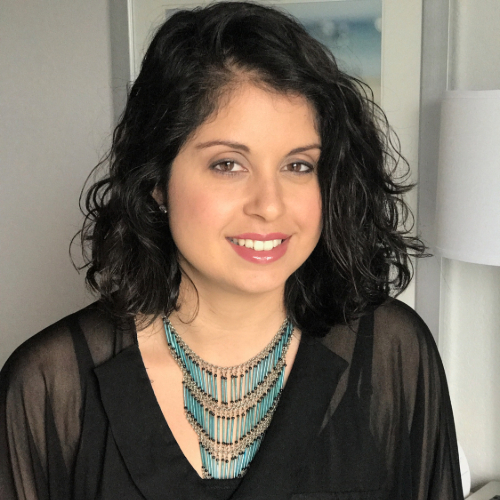Adult ADHD Evaluation and Diagnosis in New Jersey
Adult ADHD Services in NJ
Expert ADHD assessments by board-certified psychiatrists in Red Bank, Freehold, Marlboro, and via telehealth across NJ, NY, and PA
An adult ADHD evaluation at Kolli Psychiatric & Associates is a comprehensive 60 minute diagnostic assessment with a board-certified, fellowship-trained psychiatrist who specializes in adult ADHD. We don’t just hand you a questionnaire—we conduct a thorough clinical interview exploring your symptoms, life history, and current challenges to determine whether you have ADHD, another condition that mimics ADHD, or both. Most patients receive a clear diagnosis and treatment plan at the first visit, including medication management when appropriate.
If you’ve spent years wondering why focus feels impossible, organization is a constant battle, or you can’t seem to follow through on things that matter to you, an ADHD evaluation can finally provide answers. Many of our adult patients describe a sense of relief when they realize their struggles aren’t character flaws—they’re symptoms of a treatable medical condition. We offer ADHD evaluations in-office at our Red Bank or via secure telehealth throughout New Jersey, New York, and Pennsylvania.
Tired of managing symptoms on your own?
Meet our Team
At Kolli Psychiatric and Associates, our team of dedicated New Jersey psychiatrists provides comprehensive, compassionate mental health services tailored to meet the unique needs of each patient. Whether you’re seeking an ADHD evaluation, depression diagnosis, or anxiety treatment in NJ, our providers are here to support you on your journey to wellness.

Dr. Sireesha Kolli
Child, Adolescent, and Adult Psychiatrist

Dr. Neha Naqvi
Child, Adolescent, and Adult Psychiatrist

Dr. Pooja Tandon
Adult Psychiatrist
Schedule Your Adult ADHD Evaluation
If you’ve spent years wondering whether you have ADHD—or you’ve suspected it but never pursued a formal diagnosis—now is the time to get answers. ADHD is one of the most treatable psychiatric conditions, and the right diagnosis can be life-changing.
Call our office at 732-655-4568 or request an appointment online. We serve patients throughout Monmouth County including Red Bank, Freehold, Marlboro, Middletown, Holmdel, and surrounding communities, as well as telehealth patients across New Jersey, New York, and Pennsylvania.
Ready to understand why focus feels impossible?
Let’s figure out what’s really going on—and get you the treatment that works.
What Happens During an Adult ADHD Evaluation
An ADHD evaluation is more than just filling out forms. Our psychiatrists use a combination of clinical interview, standardized assessments, and medical expertise to determine whether your symptoms meet diagnostic criteria for ADHD—and to rule out other conditions that can look like ADHD but require different treatment.
Your psychiatrist will explore:
- Your current symptoms—inattention, hyperactivity, impulsivity, and how they impact your daily life
- When your symptoms started (ADHD is present from childhood, even if you weren’t diagnosed)
- Your childhood and school history—academic performance, behavior patterns, and early signs of ADHD
- How ADHD symptoms show up in your work, relationships, home life, and self-esteem
- Other mental health conditions that often co-occur with ADHD, like anxiety or depression
- Medical history, sleep patterns, substance use, and medications that could affect attention
- Family history of ADHD or related conditions
- What strategies you’ve already tried and whether they’ve helped
We’ll use validated assessment tools:
- Clinical interviews based on DSM-5 criteria for ADHD in adults
- Review of any previous testing, report cards, or documentation from childhood
- Discussion of how symptoms have evolved from childhood to adulthood
Together, we’ll determine:
- Whether you meet diagnostic criteria for ADHD (inattentive type, hyperactive type, or combined type)
- Whether other conditions like anxiety, depression, or learning disorders are present
- What’s causing your symptoms—ADHD, something else, or a combination
- The best treatment approach for your specific situation
This evaluation is conducted by a psychiatrist with years of specialized training in ADHD diagnosis and treatment—not a screening tool or a nurse practitioner. That level of expertise matters when symptoms are complex or overlapping.
After Your ADHD Evaluation: Getting Treatment Started
Most patients leave their ADHD evaluation with clarity about what’s been making life harder—and a concrete plan to address it. Here’s what happens next:
Clear diagnosis and explanation – Your psychiatrist will explain whether you have ADHD, how it presents in your specific case, and what it means for your treatment.
Personalized treatment plan – Treatment may include ADHD medication (stimulants or non-stimulants), executive function coaching, behavioral strategies, or therapy referrals.
Medication started same-day if appropriate – If you and your psychiatrist agree that medication is the right choice, your prescription will be sent electronically to your pharmacy before you leave.
Follow-up scheduled in 2-4 weeks – ADHD medication often requires adjustment in the first few months, so we’ll schedule regular follow-ups to monitor effectiveness and side effects.
Support for workplace or school accommodations – We can provide documentation for ADA accommodations at work or academic accommodations if needed.
Collaborative care with your therapist – Many adults with ADHD benefit from both medication and therapy. We’ll coordinate with your therapist or help connect you with one.
ADHD is highly treatable. Most adults experience significant improvement in focus, organization, emotional regulation, and follow-through once they receive the right diagnosis and treatment.
Why Adults Choose Kolli Psychiatric for ADHD Evaluations
Psychiatrists who specialize in adult ADHD
Every ADHD evaluation is conducted by a board-certified psychiatrist with extensive training in diagnosing and treating ADHD across the lifespan. We understand how ADHD presents differently in adults compared to children, and we’re skilled at distinguishing ADHD from anxiety, depression, or other conditions that can mimic attention problems.
Accurate diagnosis, not just a screening
We don’t rely solely on online questionnaires or brief screenings. Our psychiatrists conduct comprehensive evaluations that consider your full clinical picture, including co-occurring conditions, medical history, and life circumstances. This ensures you get the right diagnosis and the right treatment.
Same-day treatment plans and medication management
You won’t wait weeks for answers. Most patients receive a diagnosis and initial treatment plan during the first visit. If medication is appropriate, we’ll prescribe it the same day and schedule follow-up to monitor your response and adjust dosing as needed.
We prescribe all ADHD medications, including stimulants
As psychiatrists, we’re fully licensed to prescribe controlled substances including stimulant medications like Adderall, Vyvanse, Ritalin, and Concerta, as well as non-stimulant options like Strattera, Wellbutrin, and Qelbree. We’ll discuss all options and help you choose the medication that’s right for your lifestyle and concerns.
Convenient location plus telehealth
Choose from in-person ADHD evaluations at our Red Bank Office, or meet with your psychiatrist via secure telehealth from anywhere in New Jersey, New York, or Pennsylvania. Follow-up medication management visits are also available via telehealth.
Help with workplace and school accommodations
We provide documentation for ADA accommodations at work, graduate school testing accommodations, and other situations where formal ADHD diagnosis is required. Our evaluations meet the standards required by employers, schools, and licensing boards.
Insurance-friendly out-of-network practice
We partner with Thrizer to handle your out-of-network insurance billing. Many patients receive significant reimbursement and only pay their copay after meeting their deductible. ADHD evaluations and medication management are typically covered mental health services.
Book Appointments with Psychiatrist in Red Bank, Freehold, New Jersey
Serving Red Bank, Freehold, Rumson, Lincroft, Tinton Falls, Middletown, Manalapan, Marlboro, Ocean county, Monmouth county, Little Silver, NJ and NYC
Conditions We Treat
Our experienced New Jersey psychiatrists specialize in treating a wide range of mental health issues, from simple to complex concerns, including but not limited to depression, anxiety OCD, ADHD, corporate work stress, and personality disorders.
Do I Actually Have ADHD? Common Signs in Adults
ADHD in adults often looks different than the stereotypical hyperactive child. Many adults with ADHD were never diagnosed as children, especially women and people with primarily inattentive symptoms. You don’t need to have been “bouncing off the walls” as a kid to have ADHD now.
You might have ADHD if you:
- Start projects with enthusiasm but rarely finish them
- Feel constantly overwhelmed by tasks that seem simple for other people
- Struggle to focus during meetings, conversations, or reading—even when you want to pay attention
- Lose track of time, miss deadlines, or consistently run late despite your best intentions
- Have a hard time organizing your home, workspace, or schedule
- Forget appointments, where you put things, or what you were about to say mid-sentence
- Feel restless, fidgety, or mentally hyperactive even if you don’t appear physically hyperactive
- Make impulsive decisions—interrupting others, spending money without thinking, or saying things you regret
- Have trouble prioritizing tasks or estimating how long things will take
- Procrastinate on important tasks but hyperfocus on things that interest you
- Feel like you’re constantly “dropping the ball” at work or home despite working harder than everyone else
- Experience emotional ups and downs, irritability, or low frustration tolerance
- Have always felt this way but assumed you were lazy, undisciplined, or “just not good at adulting”
These symptoms must have been present since childhood (even if you weren’t aware of them or they weren’t problematic until adulthood) and must interfere with your functioning in multiple areas of life. If this sounds familiar, an ADHD evaluation can provide clarity.
ADHD vs. Anxiety vs. Depression: Getting the Right Diagnosis
Many conditions can cause attention problems, disorganization, and difficulty completing tasks. That’s why a thorough psychiatric evaluation is so important—getting the wrong diagnosis means getting the wrong treatment.
ADHD can look like anxiety when you’re constantly worried about forgetting things, missing deadlines, or letting people down because of your ADHD symptoms. But ADHD causes the attention problems first, and anxiety develops as a result of living with untreated ADHD.
ADHD can look like depression when years of underachievement, criticism, and feeling like a failure lead to low mood and low self-esteem. But in ADHD, the depression is often reactive—it improves once the ADHD is treated and you start experiencing success.
Anxiety and depression can look like ADHD because they genuinely do impair concentration, memory, and motivation. But the underlying cause is different, so the treatment is different.
Our psychiatrists are trained to untangle these overlapping symptoms and determine what’s really driving your difficulties. Many adults have both ADHD and anxiety or depression—and when that’s the case, both need to be treated for you to feel your best.
ADHD Medication: What to Expect
If your evaluation confirms ADHD, medication is often the most effective first-line treatment. ADHD medications work by increasing dopamine and norepinephrine in the brain, which improves focus, impulse control, and executive function.
Stimulant medications (like Adderall, Vyvanse, Ritalin, Concerta) work quickly—often within 30-60 minutes—and most adults notice significant improvement in focus and task completion. Stimulants are controlled substances, but they’re safe and effective when prescribed and monitored by a psychiatrist.
Non-stimulant medications (like Strattera, Wellbutrin, Qelbree, or Intuniv) are alternatives for patients who don’t respond well to stimulants, have a history of substance use, or prefer a non-controlled medication. These take longer to work but can be very effective.
Your psychiatrist will discuss the pros and cons of each medication, address your concerns about side effects or dependency, and help you choose the option that fits your life. ADHD medication is adjusted over the first few months to find the right dose and timing for your schedule.
Frequently Asked Questions About Adult ADHD Evaluations
How is ADHD diagnosed in adults?
ADHD is diagnosed through a comprehensive clinical interview with a psychiatrist, not through a single test or brain scan. Your psychiatrist will assess whether your symptoms meet DSM-5 criteria for ADHD, explore your childhood and current functioning, use standardized rating scales, and rule out other conditions that can mimic ADHD. The diagnosis is based on the pattern, severity, and duration of symptoms—not just whether you have trouble focusing sometimes.
Do I need formal testing, or is an evaluation enough?
For most adults, a thorough psychiatric evaluation is sufficient to diagnose ADHD. Formal neuropsychological testing (which involves hours of cognitive testing) is usually only necessary if there’s diagnostic uncertainty, concern about learning disabilities, or if you need documentation for specific accommodations. Your psychiatrist will let you know if additional testing would be helpful in your case.
Can you diagnose ADHD if I don’t have childhood records or report cards?
Yes. While ADHD must have been present in childhood, many adults don’t have access to old report cards or formal documentation. Your psychiatrist will ask detailed questions about your childhood, school experience, and early behavior patterns. Many adults can recall enough information—or have family members who can provide insight—to establish that symptoms were present before age 12, even if they weren’t identified as ADHD at the time.
I wasn’t hyperactive as a kid—can I still have ADHD?
Absolutely. Many adults, especially women, have inattentive-type ADHD, which doesn’t involve hyperactivity. Inattentive ADHD is characterized by difficulty sustaining attention, forgetfulness, disorganization, and being easily distracted—without the physical restlessness of hyperactive ADHD. This type is often missed in childhood because these children don’t disrupt the classroom, but the symptoms can become more problematic in adulthood when demands increase.
How long does an ADHD evaluation take?
The initial ADHD evaluation typically takes 60 minutes. If more time is needed, a second appointment is scheduled to complete the evaluation. This allows your psychiatrist to conduct a thorough clinical interview, review your history, administer rating scales, and discuss treatment options. Some patients complete questionnaires before the appointment to streamline the process. Follow-up visits for medication management are usually 15-30 minutes.
Will I get diagnosed and treated at the first visit?
In most cases, yes. If your symptoms clearly meet criteria for ADHD and there are no complicating factors, your psychiatrist will provide a diagnosis and treatment plan during the first visit. If medication is appropriate, your prescription will be sent to your pharmacy the same day. In more complex cases—such as when symptoms overlap significantly with other conditions—we may schedule a follow-up to gather additional information before finalizing the diagnosis.
What if I have ADHD and anxiety or depression?
This is very common. About 50% of adults with ADHD also have anxiety or depression. Our psychiatrists are trained to diagnose and treat co-occurring conditions. In many cases, treating the ADHD first improves the anxiety and depression because you’re no longer constantly stressed by ADHD-related failures and setbacks. We’ll create a treatment plan that addresses all of your symptoms.
Are ADHD medications safe? Will I become dependent on them?
ADHD medications are safe and effective when prescribed and monitored by a psychiatrist. Stimulant medications are controlled substances, but when taken as prescribed for ADHD, they do not cause addiction or dependency. In fact, treating ADHD with medication actually reduces the risk of substance use disorders. Your psychiatrist will discuss potential side effects, monitor your response, and adjust your treatment as needed.
Can I get ADHD medication without seeing a psychiatrist?
In New Jersey, some primary care doctors and nurse practitioners prescribe ADHD medication, but they often have less training in managing complex cases, co-occurring conditions, or medication adjustments. Psychiatrists have specialized expertise in ADHD diagnosis and treatment, which is especially important for adults whose symptoms may overlap with anxiety, depression, or other conditions. If you want an accurate diagnosis and optimized treatment, seeing a psychiatrist is the best choice.
Do you prescribe Adderall, Vyvanse, and other stimulants?
Yes. As board-certified psychiatrists, we’re fully licensed to prescribe all ADHD medications, including controlled stimulants like Adderall, Adderall XR, Vyvanse, Ritalin, Concerta, and Focalin, as well as non-stimulant options like Strattera, Wellbutrin, Qelbree, and Intuniv. We’ll discuss which medication is best for your symptoms, lifestyle, and preferences.
Can you provide documentation for work or school accommodations?
Yes. If you need documentation for ADA workplace accommodations, graduate school testing accommodations, licensing board requirements, or disability benefits, we can provide formal diagnostic referrals. Our evaluations can meet the standards required by some employers, educational institutions, and licensing boards depending on the level of formal testing they require.
Is an ADHD evaluation covered by insurance?
Kolli Psychiatric & Associates is an out-of-network practice, but ADHD evaluations and medication management are typically covered as out-of-network mental health services. We partner with Thrizer to handle your insurance billing, and many patients receive significant reimbursement. After meeting your deductible, you often only pay your copay for visits. We provide detailed superbills for all major insurance carriers.
How soon can I schedule an ADHD evaluation?
We typically have availability for new patient ADHD evaluations within 1-2 weeks. Call our office at 732-655-4568 or request an appointment online, and our team will match you with a psychiatrist who specializes in adult ADHD at your preferred location—Red Bank or via telehealth.
What’s the difference between an ADHD evaluation and a general psychiatric evaluation?
An ADHD evaluation is a type of psychiatric evaluation that’s specifically focused on diagnosing and treating ADHD. It includes a more detailed exploration of attention, impulsivity, hyperactivity, executive function, and childhood history. If you’re coming in specifically because you suspect ADHD, an ADHD-focused evaluation ensures we spend the time necessary to make an accurate diagnosis and differentiate ADHD from other conditions.
What is the process for getting an ADHD diagnosis in New Jersey?
Our ADHD evaluation process includes a comprehensive assessment of your symptoms, medical history, and daily challenges. We conduct a structured clinical interview and may use additional screening tools to ensure an accurate diagnosis.
Do you offer evaluations with an ADHD specialist in NJ?
Yes, our ADHD specialists in NJ provide ADHD evaluations for adults in Red Bank, Freehold, and throughout New Jersey, both in-person and virtually.
What are the benefits of working with an ADHD specialist in NJ?
An ADHD specialist ensures an accurate diagnosis, provides personalized treatment plans, and helps you manage symptoms with medication management and behavioral strategies for better focus, organization, and daily functioning.
What should I do if my ADHD medication isn’t working or has side effects?
If your medication isn’t working or causes side effects, contact us. We’ll assess your response and adjust your dosage, switch medications, or explore alternative treatments to improve effectiveness and minimize side effects.
Can a psychiatrist for attention deficit disorder help adjust my medication?
Yes. Our psychiatrists specializing in ADHD carefully monitor your progress and make adjustments to medication as needed to ensure the best results while minimizing side effects.

























